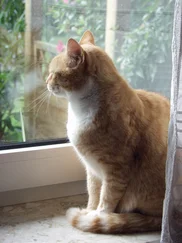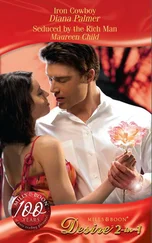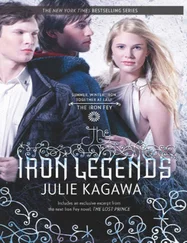'Would you like to go to America?' I asked him.
'Why?'
'To take my letter. Instead of mailing it, you could take it in person: fly to America and fly back. It would be an adventure. Better than sailing. My daughter would meet you and take care of you. I would buy the ticket in advance. Would you go?'
He smiled bravely. But some of my jokes touch a sore spot, I know.
'I am serious,' I said.
But the truth is, it is not a serious suggestion. Vercueil with a haircut, In shop clothes, mooning about in your guest bedroom, desperate for a drink, too shy to ask; and you in the next room, the children asleep, your husband asleep, poring over this letter, this confession, this madness – it does not bear thinking of. I do not need this, you say to yourself through gritted teeth: this is what I came here to get away from, why does it have to follow me?
With time on my hands, I have been shuffling through the pictures you have sent from America over the years, looking at the backgrounds, at all the things that fell willy-nilly within the frame at the instant you pressed the button. In the picture you sent of the two boys In their canoe, for instance, my eye wanders from their faces to the ripples on the lake and the deep green of the fir-trees and then back to the orange lifejackets they wear, like waterwings of old. The dull, bland sheen of their surfaces quite hypnotizes me. Rubber or plastic or something in between: some substance coarse to the touch, tough. Why is It that this material, foreign to me, foreign perhaps to humankind, shaped, sealed, inflated, tied to the bodies of your children, signifies so intensely for me the world you now live in, and why does it make my spirit: sink? I have no idea. But since this writing has time and again taken me from where I have no idea to where I begin to have an idea, let me say, in all tentativeness, that perhaps It dispirits' me that your children will never drown. All those lakes, all that water: a land of lakes and rivers: yet if by some mischance they ever tip out of their canoe, they will bob safely in the water, supported by their bright orange wings, till a motor-boat comes to pick them up and bear them off and all is well again.
A recreation area, you call It on the back of the photograph. The lake tamed, the forest tamed, renamed.
You say you will have no more children. The line runs out, then, in these two boys, seed planted In the American snows, who will never drown, whose life-expectancy Is seventy-five and rising. Even I, who live on shores where the waters swallow grown men, where life-expectancy declines every year, am having a death without illumination. What can these two poor underprivileged boys paddling about in their recreation area hope for? They will die at seventy-five or eighty-five as stupid as when they were born.
Do I wish death upon my grandchildren? Are you, at this very Instant, flinging the page away from, you in disgust? Mad old woman! are you crying out?
They are not my grandchildren. They are too distant to be children of mine of whatever sort. I do not leave behind a numerous family. A daughter. A consort and his dog.
By no means do I wish death upon them. The two boys' whose lives have brushed mine are in any event already dead. No, I wish your children life. But the wings you have tied on them will not guarantee them life. Life is dust between the toes. Life is dust between the teeth. Life is biting the dust.
Or: life is drowning. Falling through water, to the floor.
The time is nearly upon me when I will have to depend on help for the most Intimate things. High time, then, to put an end to this sorry story. Not that I doubt Vercueil would help. When it comes to last things, I no longer doubt him in any way. There has always been in him a certain hovering if undependable solicitude for me, a solicitude he knows no way of expressing. I have fallen and he has caught me. It is not he who fell under my care when he arrived, I now understand, nor I who fell under his: we fell under each other, and have tumbled and risen since then in, the flights and swoops of that mutual election.
Yet he is as far from being a nurse, a nourrice, a nourisher as I can imagine. He is dry. His drink is not water but fire. Perhaps that is why I cannot imagine children of his: because his semen would be dry, dry and brown, like pollen or like the dust of this country.
I need his presence, his comfort, his help, but he needs help too. He needs the help only a woman can give a man. Not a seduction but an induction. He does not know how to love. I speak not of the motions of the soul but of something simpler. He does not know how to love as a boy does not know how to love. Does not know what zips and buttons and clasps to expect. Does not know what goes where. Does not know how to do what he has to do.
The nearer the end comes, the more faithful he is. Yet still I have to guide his hand.
I remember the day when we sat in the car, when he held out the matches to me and told me to Do it. I was outraged. But was 1 fair to him? It seems to me now that he has no more conception of death than a virgin has of sex. But the same curiosity. The curiosity of a dog that sniffs at one's crotch, wagging its tail, its tongue hanging: out red and stupid as a penis.
Yesterday, as he was helping me into the bath, my robe slipped open and I caught him staring. Like those children on Mill Street: no decency in him. Decency: the inexplicable: the ground of all ethics. Things we do not do. We do not stare when the soul leaves the body, but veil our eyes with tears or cover them with our hands. We do not stare at scars, which are places where the soul has struggled to leave and been forced back, closed up, sewn in.
I asked him whether he was still feeding the cats. 'Yes,' he said, lying. For the cats are gone, chased out. Do I care? No, not any more. After I have cared for you, for him, there is little space left in my heart. The rest must, as they say, go to pot.
Last night, growing terribly cold, I tried to call you up to say goodbye. But you would not come. I whispered your name. 'My daughter, my child, ' I whispered into the darkness; but all that appeared to me was a photograph: a picture of you, not you. Severed, I thought: that line severed too. Now there is nothing to hold me.
But I fell asleep, and woke up, and was still here, and this morning feel quite strong. So perhaps it is not only I who do the calling. Perhaps when I grow cold it is because I am being called out of my body across the seas, and do not know it.
As you see, I still believe in your love.
I am going to release you soon from this rope of words. There is no need to be sorry for me. But spare a thought for this man left behind who cannot swim, does not yet know how to fly.
I slept and woke up cold: my belly, my heart, my very bones cold. The door to the balcony was open, the curtains were waving in the wind.
Vercueil stood on the balcony staring out over a sea of rustling leaves. I touched his arm, his high, peaked shoulders, the bony ridge of his spine. Through chattering teeth I spoke: 'What are you looking at?'
He did not answer. I stood closer. A sea of shadows beneath us, and the screen of leaves shifting, rustling, like scales over the darkness.
'Is it time?' I said.
I got back into bed, into the tunnel between the cold sheets. The curtains parted; he came in beside me. For the first time I smelled nothing. He took me in his arms and held me with mighty force, so that the breath went out of me in a rush. From that embrace there was no warmth to be had.

John Michael Coetzee was born in 1940 in Cape Town, South Africa, the son of a lawyer and a teacher. Coetzee grew up in an English-speaking household and attended English-language schools, but he also spoke Afrikaans, developed from the Dutch language and spoken by most whites in South Africa. He spent most of his childhood near the town of Worcester, about 70 miles outside of Cape Town.
Читать дальше













